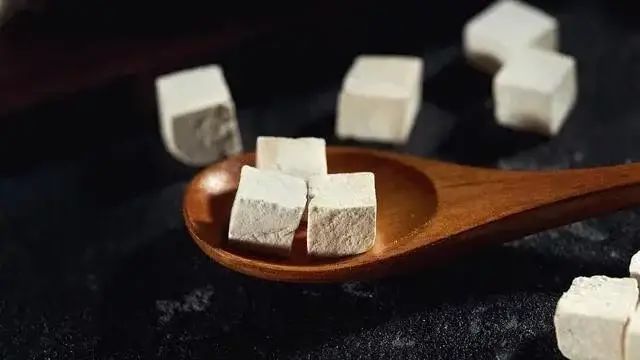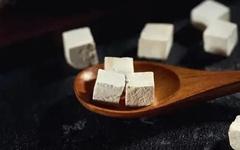Poria (Fu Ling) is a very common traditional Chinese medicinal herb, and many of our friends may have heard of it in their daily lives. Of course, the medicinal value of Poria is very high, and appropriate consumption of Poria can not only help us achieve good health benefits but also effectively enhance the body’s resistance to diseases. Additionally, it is very helpful in alleviating certain ailments. In daily life, Poria can be prepared as a decoction, ground into powder for consumption, or made into noodles or porridge. Regardless of the method, the efficacy of Poria can be fully realized. Let’s take a look at the efficacy and functions of Poria and the various ways to consume it!

The Efficacy and Functions of Poria
1. Cough Relief and Dampness Elimination
Many people who suffer from chronic cough have significant dampness in their bodies. If the cough persists, Poria can be effective. Combining it with Ban Xia (Pinellia) and Chen Pi (Dried Tangerine Peel), or pairing it with Gui Zhi (Cinnamon Twig) and Bai Zhu (White Atractylodes) for decoction can yield remarkable results.
2. Strengthening the Spleen and Stomach
As a traditional Chinese medicine, Poria has excellent health benefits. For individuals with spleen and stomach deficiency and coldness, which often leads to indigestion and diarrhea, Poria can be consumed with Bai Zhu (White Atractylodes) and Shan Yao (Chinese Yam) to strengthen the spleen and stomach.
3. Antibacterial and Anti-inflammatory
Scientific research indicates that the decoction of Poria has a significant inhibitory effect on bacteria such as Staphylococcus aureus and Escherichia coli. Therefore, when the body is infected and inflammation occurs, consuming Poria can help alleviate these conditions.
4. Alleviating Edema
If there are symptoms of difficulty urinating or body swelling, Poria can also be consumed to relieve these issues. It can be combined with Zhu Ling (Polyporus) and Ze Xie (Alisma) for decoction, which enhances its effectiveness.
5. Promoting Metabolism
Poria contains polysaccharides, choline, triterpenoids, lecithin, and various elements such as potassium and magnesium, which have a beneficial effect on the spleen and calming the mind, effectively promoting metabolic circulation and enhancing the body’s immune capacity.
Methods of Consuming Poria
Poria contains polysaccharides, proteins, lecithin, and other substances necessary for the human body. It can promote diuresis, lower blood sugar, and eliminate dampness. Common methods of consumption include making soups, cooking porridge with Poria, or preparing various teas. Different preparation methods yield different tastes and health benefits.
1. Appetite-Enhancing Soup
15 grams of Poria, 12 grams of Huai Shan Yao (Chinese Yam), 30 grams each of barley and wheat malt, and one fresh or dried duck gizzard. Boil the ingredients to make a soup for drinking. This soup can improve digestive issues in children and alleviate loss of appetite.
2. Poria Tofu
20 grams of Poria powder, 500 grams of tofu, and an appropriate amount of carrots and shiitake mushrooms. Mix the Poria powder with tofu evenly, season with salt and cooking wine, then stir-fry the carrots and soaked shiitake mushrooms until half-cooked. Add the tofu to the pan with an appropriate amount of water and simmer on low heat, seasoning to taste before serving. Eating it with tofu can nourish yin, eliminate dampness, provide rich protein, and stimulate appetite.
3. Lotus Leaf Poria Porridge
One lotus leaf (fresh or dried), 50 grams of Poria, 100 grams of japonica rice or millet, and an appropriate amount of white sugar. Boil the lotus leaf to extract the juice, then add the Poria and washed japonica rice or millet to the strained lotus leaf broth; cook until it becomes porridge, adding white sugar to taste before serving. Lotus leaf can promote diuresis and weight loss, providing excellent health benefits for weight management and enhancing the immune system.
More Exciting Recommendations:
Prohibitions after Eating Pomegranate
What Nutritional Value Does Garlic Have? Who Should Avoid Eating Garlic?
A Reminder: There is a Major Prohibition When Eating Oranges, but Many People Are Unaware
These “Taboos” of Cabbage Should Not Be Ignored Until the Whole Family Ends Up in the Hospital
Eggplant Can Treat Six Diseases: The Taboos of Eggplant

